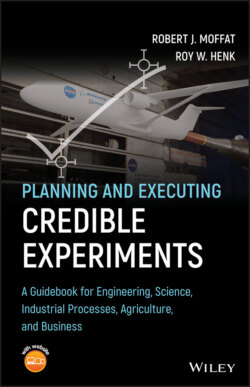Читать книгу Planning and Executing Credible Experiments - Robert J. Moffat - Страница 44
Better Invitation than a Nobel Prize
ОглавлениеMy (RH) first experimental mentor in aerodynamics was W.S. Saric. He told me the advantage our area had over other physics fields: in thermo‐fluid physics, researchers shared their techniques. His reasoning: since Ludwig Prandtl, an early pioneer in fluids, had not won a Nobel Prize, no one in our area of classical physics would expect to win. Classic thermo‐fluid physics was crucial to so many areas of science. The camaraderie of joint effort was inviting.
Essentially every Nobel Prize in Chemistry recognizes experimental work. Likewise, essentially every Nobel Prize in Physiology or Medicine recognizes experimental tests. How about for Physics Nobel Prizes? An accounting (Quantum Coffee 2014) of the Nobel Prizes in Physics up to 2014 divided as such: theory, 30.75 prizes (28.7%); experiment, 76.25 prizes (71.3%). Nobel Prizes in Physics for technical innovations (reckoned as experiment) were 22.2%, almost as much as theory.
The Higgs mechanism, theoretically predicted in 1962, eventually culminated in the announcement of the experimental discovery of the Higgs boson in 2012 at the Large Hadron Collider (LHC). The LHC employs thousands of scientists and engineers. F. Englert and P.W. Higgs received the 2013 Nobel Prize in Physics for their theoretical work. The Higgs Nobel Prize was a rare instance where theory preceded experiment. Einstein, like most theorists to win, won the prize for explaining an experiment.
